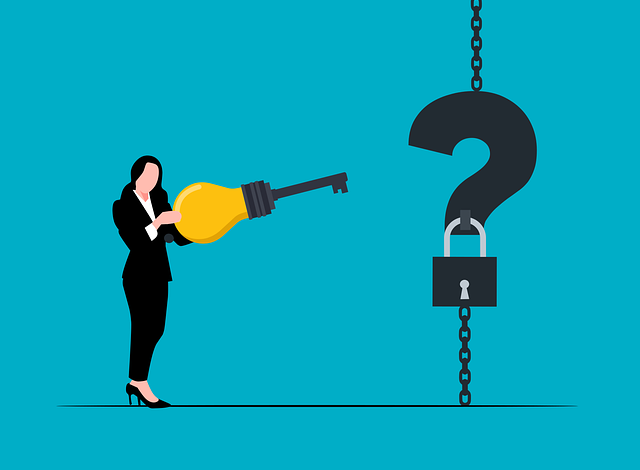Follow these five steps for thinking critically at your workplace
Critical thinking is a skill that comes in handy in many different situations, from school to work. Whether you’re looking for ways to improve your critical thinking skills or just trying to figure out what the heck critical thinking is all about, we’ve got you covered.
To start, let’s talk about what critical thinking is in a nutshell. Well, it’s basically the ability to analyze information and make judgments about it based on that analysis. You use your critical thinking skills when you decide whether something makes sense or not—whether it’s true or false, good or bad, or whether there’s anything worth analyzing at all.
Critical thinking can help you make better decisions in life and work because it helps you evaluate information objectively and accurately so that you can make informed choices based on facts rather than emotions or biases.
In a world where people seem to want to share everything, the ability to think critically is becoming more important than ever. The ability to think critically is not just something that you can do in theory — it’s something that you need to practice every day.
When you’re trying to improve your critical thinking skills, it’s important not only to know what you’re doing wrong but also how others are doing it wrong.
Critical thinking is a skill that you can use at any time, but it’s especially important in the workplace. If you’re not using your critical thinking skills every day, it may be time to take a closer look at why that is.
In this post, we’ll go over some tips on how to improve your critical thinking at work!
Know the problem precisely

Critical thinking isn’t just about how well you can think logically; it’s also an important skill for people who work in fields like journalism, law enforcement, and education because it helps them communicate clearly with their audiences when reporting on events or discussing ideas with colleagues.
In school, you may have been taught to think critically by reading essays, solving math problems, or making observations. But did you learn how to think critically in your everyday life?
The first step to improving thinking skills is to know the problem precisely. You need to know what it is you’re trying to solve, and why. If you don’t have a clear idea of your goal, you’re not going to be able to come up with any good ideas about how to get there.
A good way to do this is by writing down questions or statements about the problem. Then, ask yourself whether you have any doubts about what you’ve written down. If so, go back and reword your statement or question.
Ask questions about the problem

Critical thinking is the process of using logic and reason to analyze and evaluate information. It involves considering different perspectives, seeking out evidence, and making reasoned decisions. Critical thinking helps you learn to think for yourself, which is vital in a society where every opinion counts.
Critical thinkers can be found in every field: scientists, teachers, journalists, lawyers, doctors, and more. Critical thinking is not about being clever or original — it’s about seeing the world through other people’s eyes.
Critical thinking skills are needed to solve problems, but they also equip people with the ability to read between the lines and understand how others see things differently from them. This allows us to see situations from a broader perspective and understand why something might appear as it does.
Asking questions helps you understand how you can solve them. You can try asking yourself what are some possible solutions to this problem or what are some things that might go wrong with this solution?
Practice asking questions instead of making statements. This will help ensure that your speech or presentation isn’t just filled with one-sided answers and arguments, but rather includes several different opinions from multiple sides of an issue so that everyone can understand why they should agree with at least one point made by each speaker.
Try different strategies, ask yourself different questions, and see what happens when you apply them in different situations.
Gather available information

Critical thinkers argue persuasively; they listen carefully; they challenge assumptions; they use evidence-based reasoning instead of emotions and gut feelings. Critical thinking is a much-needed skill for everyone, but it’s especially important for those who want to be leaders or make decisions in their careers. To improve your critical thinking skills, start by practicing them regularly.
Critical thinking skills can help you make better decisions about the things that matter most in your life.
When you think critically, you can look at a situation and consider all the facts. You’ll be able to come up with an accurate conclusion about what’s happening in a situation.
Critical thinking is not just about being good at analyzing information or asking questions of yourself. It’s also about recognizing the biases and assumptions that can get in the way of your ability to make an accurate judgment.
You have to be aware of all the factors that might influence your judgment. If you think critically, you’ll be able to recognize when someone else has a bias or an assumption that could affect their analysis of the situation, or even lead them to draw incorrect conclusions.
Finally, make sure you have enough context when evaluating a situation so that your conclusions are based on what’s actually happening instead of what could happen or might happen.
List your solutions

When making decisions, ask yourself: “Is this decision based on facts?” If not, rethink it! And remember that sometimes even if you’re wrong, it doesn’t mean that no one else will agree with you.
Critical thinking is a skill that you need to develop. You can’t rely on others to tell you what to think or how to think—you have to do it yourself.
You have to become aware of how often you make errors in judgment. The next step is to identify the errors and decide how they can be corrected.
Analyze the outcome of your solutions

Try to think about how you would respond if someone asked you a question about a situation or an opinion you’ve had over the years. What would your answer be?
You can also try to predict how other people will respond to different situations and opinions. This will help you determine whether or not an idea is worth pursuing.
If you want to improve your critical thinking skills, start by getting into the habit of analyzing every piece of information that comes your way. When you see something that doesn’t make sense, ask yourself why. Why do I believe this? Why this decision is correct or wrong? Why this solution is important?
Analyze information effectively by logically evaluating its validity or importance based on the appropriateness of assumptions made in interpreting data or using logic to determine relationships among variables relevant in solving problems or answering questions.
Critical thinking for your career – pdf
Conclusion
It takes time, practice and persistence to be good at critical thinking.
First, make sure you’re using your critical thinking skills in the right way. It’s possible to be critical without being able to think critically—for example, if you criticize a person without realizing their point of view.
When you’re ready to critique someone’s (or your own) work, don’t just say “That’s wrong.” Instead, ask questions like: What are the possible reasons this might be true? How could we prove them wrong? Are there any other possible explanations?
Try not to let your own bias get in the way of your ability to analyze an idea critically and honestly. Always try to consider different viewpoints before forming an opinion about something.


